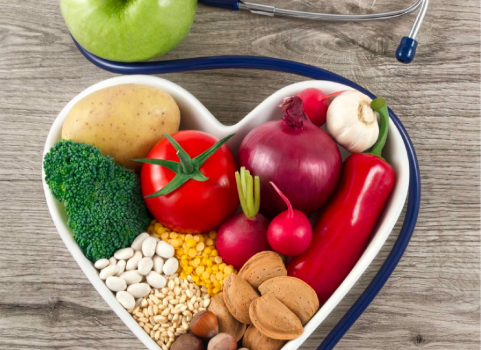
Food sensitivities are often misunderstood, with many people assuming they only occur in extreme cases, like swelling after eating shellfish or anaphylaxis from peanuts. However, food sensitivities can be much more subtle and often lead to delayed reactions in the body. These delayed immune responses, triggered by antibodies like IgG, can be challenging to identify. It’s important not to ignore any symptoms that could indicate food sensitivities.
What Is IgG?
IgG (Immunoglobulin G) is an antibody produced by the body in response to infections or foreign substances. When it comes to food sensitivities, IgG triggers a delayed immune response. Unlike immediate allergic reactions, where you might experience swelling or itching right after consuming a food, symptoms of food sensitivities can take hours or even days to appear.
Common Food Sensitivity Symptoms
Here are 17 common food sensitivity symptoms you should be aware of. If you notice any of these, it might be time to explore food sensitivity testing.
1. Stomach Pain and Bloating
Stomach discomfort like bloating or pain is a common sign of food sensitivities. When your body struggles to digest certain foods, gas builds up in the intestines, causing bloating. Foods like dairy, gluten, legumes, and certain vegetables can trigger this reaction.
2. Migraines
Migraine headaches can be triggered by certain foods, especially those containing caffeine, sulfites, or tyramine. Foods such as aged cheeses, cured meats, and certain types of alcohol can cause migraines in some individuals. Tracking your food intake can help identify specific triggers.
3. Constipation and Diarrhea
If your body mistakes a food for something harmful, it may react by causing diarrhea or constipation. This reaction can happen after eating foods you are sensitive to and often goes unnoticed as the culprit.
4. Abdominal Pain
Dull, crampy abdominal pain is another common symptom of food sensitivities. This type of pain can often be mistaken for other digestive issues, so it’s important to monitor your diet and look for patterns in symptoms.
5. Anxiety
Food sensitivities can also affect your mental health. Caffeine, in particular, can cause anxiety, jitters, and insomnia in those who are sensitive to it. If you experience nervousness or sudden bouts of anxiety after consuming caffeinated drinks or energy boosters, food sensitivities could be to blame.
6. Gut Inflammation (Colitis)
Certain foods, including salicylates found in fruits, vegetables, and spices, can trigger gut inflammation. If you experience discomfort after eating healthy foods like salads, you may be sensitive to these natural compounds. Other foods such as dairy, gluten, and eggs can also cause inflammation in the digestive tract.
7. Fatigue
Chronic fatigue can result from food sensitivities, as your body struggles to process certain foods. If you often feel drained or sluggish after eating, it might be worth considering that your food choices could be affecting your energy levels.
8. Joint Pain
Some people experience joint pain as a symptom of food sensitivities. This can include pain in the knees, elbows, or other joints that seems to flare up after eating certain foods.
9. Skin Rash
Skin reactions, such as rashes, hives, or eczema, are another sign of food sensitivities. If your skin flares up after eating certain foods, it could indicate an underlying sensitivity to those items.
10. Depression
Food sensitivities can also contribute to mood swings or feelings of depression. If you find that your mood often dips after meals, certain foods may be affecting your mental state.
11. Anemia
Certain food sensitivities can lead to nutritional deficiencies, which in turn can contribute to anemia. If you frequently feel fatigued or lightheaded, it may be worth investigating potential food triggers that could be interfering with nutrient absorption.
12. Runny Nose
A runny nose or post-nasal drip after eating might be a sign of a food sensitivity, particularly to dairy or other common allergens. This reaction is often dismissed as a cold, but if it occurs regularly, it may be tied to your diet.
13. Acid Reflux
Frequent acid reflux or heartburn after meals can indicate a sensitivity to certain foods, such as citrus, spicy foods, or high-fat meals. Identifying which foods trigger these symptoms can help you manage the discomfort.
14. Flushing of the Skin
If you notice that your skin flushes or becomes red after eating, it could be a reaction to certain foods. This symptom is commonly associated with spicy foods, alcohol, or food additives like MSG.
15. Stomach Cramps
Like abdominal pain, stomach cramps are a sign that your digestive system is reacting negatively to a food you’ve consumed. These cramps may be accompanied by bloating or discomfort.
16. Hives
Hives or welts on the skin that appear after eating could be a direct result of food sensitivities. These itchy bumps may occur after consuming foods like nuts, shellfish, or dairy.
17. Low Blood Pressure
Food sensitivities can sometimes lead to a drop in blood pressure, resulting in dizziness, lightheadedness, or fainting. If you notice these symptoms, it’s worth considering whether your diet could be the cause.
What to Do if You Suspect Food Sensitivities
Over 15 million Americans suffer from food sensitivities, many of which go undiagnosed. If you suspect that food sensitivities are affecting your health, it’s important to take action. Consider tracking your food intake in a journal, noting what you eat, when you eat it, and how you feel afterward. Additionally, getting a food sensitivity test can help identify which foods are causing your symptoms.
An elimination diet, where you remove suspected trigger foods and reintroduce them one at a time, can also help pinpoint problem foods. By combining these methods with professional testing, you can identify and eliminate foods that are making you feel unwell, helping you improve your health and quality of life.
Conclusion
If you’ve been experiencing unexplained symptoms such as stomach pain, migraines, or fatigue, your food sensitivities could be to blame. It’s crucial not to ignore these signs and to take steps toward identifying the foods causing these reactions. With the right approach, including food sensitivity testing and an elimination diet, you can gain control of your health and live symptom-free.










